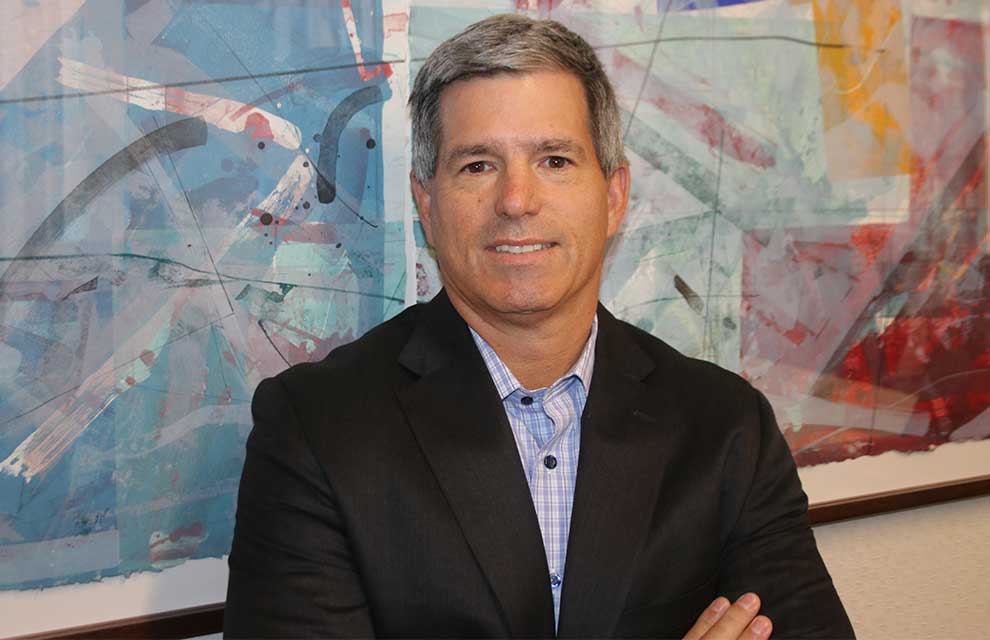SLT speaks to MUFG’s Tim Smollen, the global head of the recently-established Global Securities Lending Solutions business, along with Anthony Toscano, head of the Americas, and John Schreyer, head of EMEA and Asia
How is the build going and how has the global pandemic impacted the overall project?
Tim Smollen: Overall, the build-out is going extremely well but that is because I am fortunate to have on my team some very experienced people who have done this before who know what needs to be done. I always say we are a lot like a soccer team where everyone knows which way everyone else is going to cut – you need complete trust in your people to be able to do what we are doing in such a short period of time.
The global pandemic has certainly created some challenges but we were fortunate to have started at MUFG some two months before the lockdowns hit so our project was well underway by that point and so we just continued to push ahead. We have made effective use of frequent team video calls – for me personally, I think it is important to see everyone as often as possible on these calls and we try to have some fun as well. They are good for morale and ensure we stay on the same page at all times.
You and your team have spent a large chunk of your careers with German institutions. How has your experience been working for a Japanese Bank?
Smollen: Having spent a lot of time in Japan early in my career I thought I knew what to expect but I have been blown away by the excitement, enthusiasm and support from across MUFG for what we are building. We now have a number of Japanese nationals on our team and even more supporting us around the world and without them we would not be as far advanced as we are today – they help navigate this very large bank we are a part of and educate us frequently on how things work. I can’t really summarise Japanese business culture but if I had to it includes frequent communication, patience, commitment and respect. It is also reflected in a pervasive sense of long-term commitment to clients and a given industry. It is very refreshing to work for a firm that lives and breathes these values every day.
Let’s talk about the client side of the business. Can you talk about the types of clients you will be working with/targeting and what would make a client jump from a major custodial programme to MUFG?
Anthony Toscano: During the course of our more than 25 years in securities lending, Tim, Jay and I have spoken to hundreds of investors and gotten their views on what they look for in a securities lending agent. These investors include some of the largest sovereign wealth funds, insurance companies, registered investment companies, pension plans and central banks in the world. Core themes remain constant: they want expertise in securities lending, a well-capitalised and strong balance sheet, global reach, and they want to work with a bank that is relevant to where they are, which conducts itself professionally behind the scenes. Any client who is concerned they are getting lost in the crowd as part of its global custodian’s lending programme, wants transparency to their performance and the overall securities finance market, who is looking for an agent who can deliver a stable revenue stream in a manner designed by themselves, backed by an indemnity from a strong financial institution, will look to shift their securities lending mandate to us.
What’s more, as a result of many veterans of the industry having been let go due to cost-cutting at the global custodians, clients are hard pressed to find desks staffed with traders who have experienced multiple interest rate cycles and major market events. That is not the case here at MUFG. We have a team with more than 20 years of experience who can deliver what our clients need and expect, no matter the market conditions.
By all measurements (DataLend, IHS Markit, etc) lendable supply continues to grow to record levels but there is not the same growth on the borrowing/hedge fund side. How do you capture some of that market share? Is there room for another lending agent?
Toscano: Frankly, the usual drum beat of “too much supply, not enough demand” is a cop out. A good securities lending agent is hired for more than just matching lists of shorts to their inventory. It requires a proactive approach, where the lending agent looks at what is not on loan and works to utilise that supply. This requires tracking volatility in the global markets, watching the options markets and panning inventory for affected supply.
Equally important, a good securities lending desk spends time with counterparts to understand their current constraints and works with them on different structures that can help alleviate those pressures. Add in collateral flexibility and automation, and you can understand why market share would be shifted to a new lender such as ourselves.
Can you talk to us about your technology decision/strategy?
John Schreyer: Sure happy to take a technology question. Our ultimate solution is actually a hybrid technology model where the EquiLend-Stonewain system called Spire will be our core platform which will be combined with a number of internally developed applications/tools plus we also utilise other vendor solutions which can give us a competitive advantage. The most important point for our business is to have a platform that provides the utmost flexibility and transparency for our clients. With markets changing so rapidly we wanted a core platform that had the ability to change quickly and at the same time seamlessly work with any of a number of internal/external applications be they data analytics, artificial intelligence or predictive trading to name just a few. I guess you can say what was most important was the criticality of always driving our own agenda by remaining nimble and able to react quickly.
Can you talk about the key requirements when setting up new trading desk(s)?
Schreyer: Sure. For me, it is all about finding a way to match the needs of the clients to the binding constraints of the borrowers. We really are in a unique position to be able to do that.
The first key requirement is going to be our technology. Setting up the trading desks around the globe on one cutting-edge platform will allow us to be more proactive in our trading than ever, whilst answering the daily needs of the borrower. It will allow us to be extremely efficient, so our traders can direct their attention to the important topics that will drive our success rather than getting bogged down processing tickets whilst juggling compliance checks. It will give us the ability to create a network of small, dynamic, focused and interconnected trading desks that will have the time to work on creating the solutions that our clients and the street needs. Our unique position also gives us the chance to establish brand new, and completely up-to-date lending agreements that will mean we will not be tied in knots by having legacy agreements that require a huge effort just to update.
If you can look into your crystal ball, where do you see the GSLS business in five years’ time?
Smollen: We don’t care about league tables or survey results. Instead we care about building a world-class programme that will meet the needs of many of MUFG’s highly prestigious clients which demand and expect the best. I also expect to build and deliver the leading third-party lending programme in the world where we want to be the first choice for beneficial owners who want better performance and service.
I can promise you this programme has the right blueprint, talent and fundamentals required to make it one of the most compelling programmes on the street and what we believe will be the only true global agency securities lending programme with trading desks around the globe covering all asset classes with its roots in Asia.


